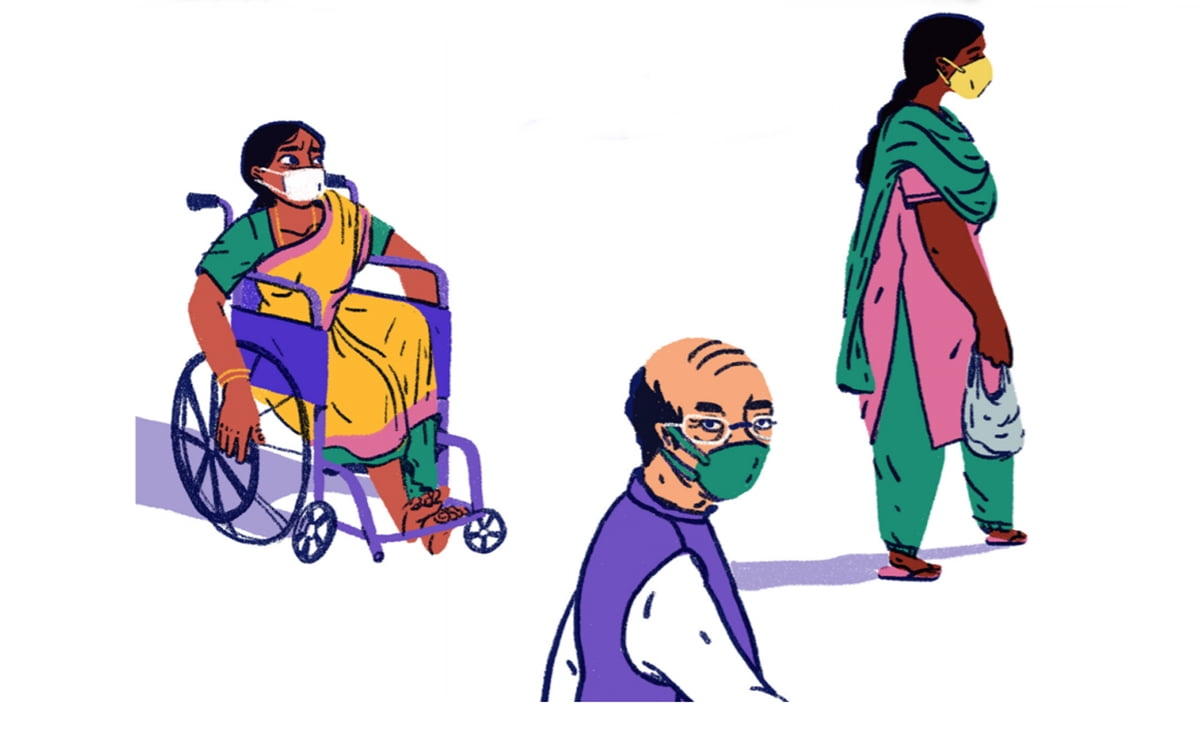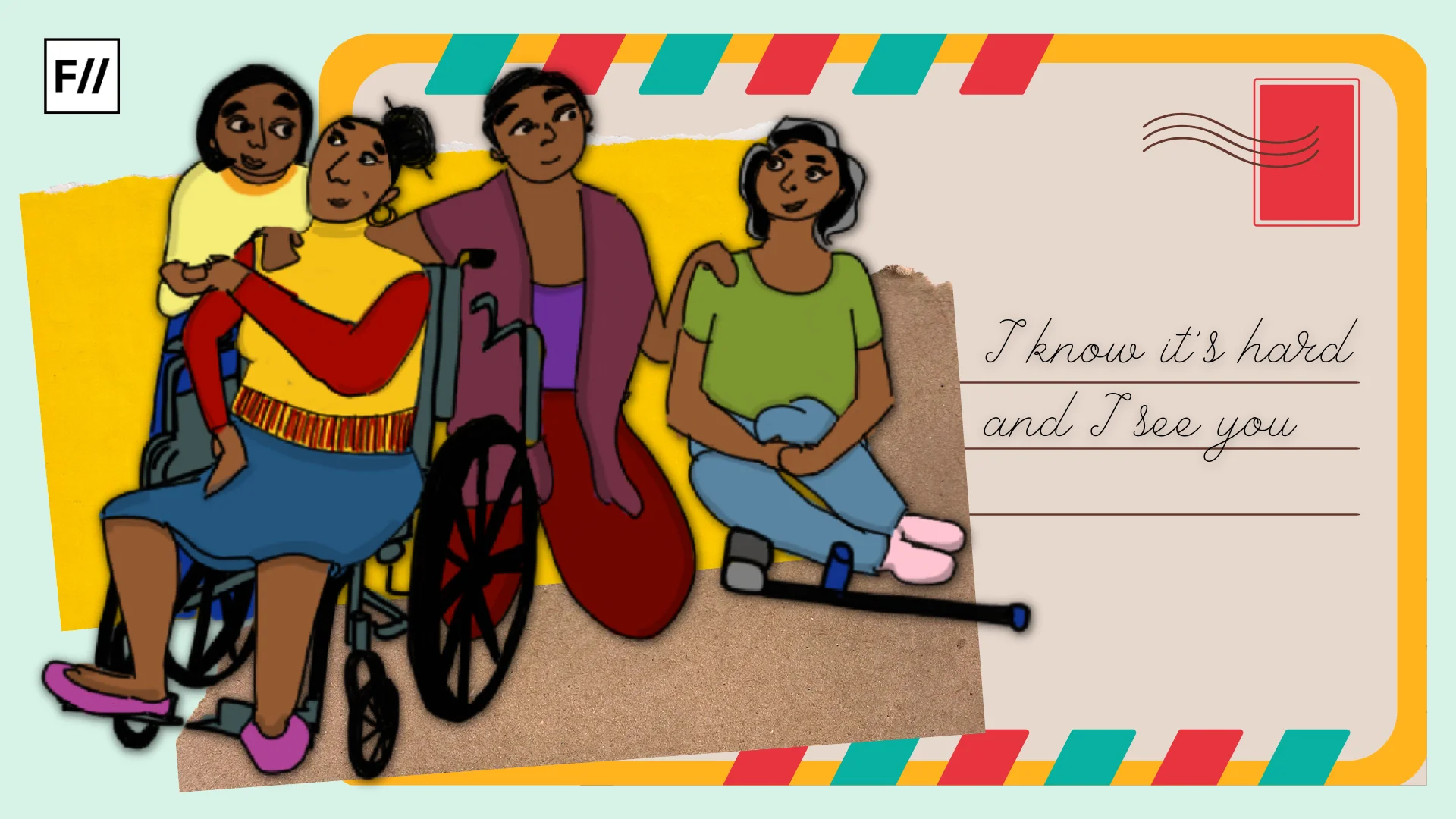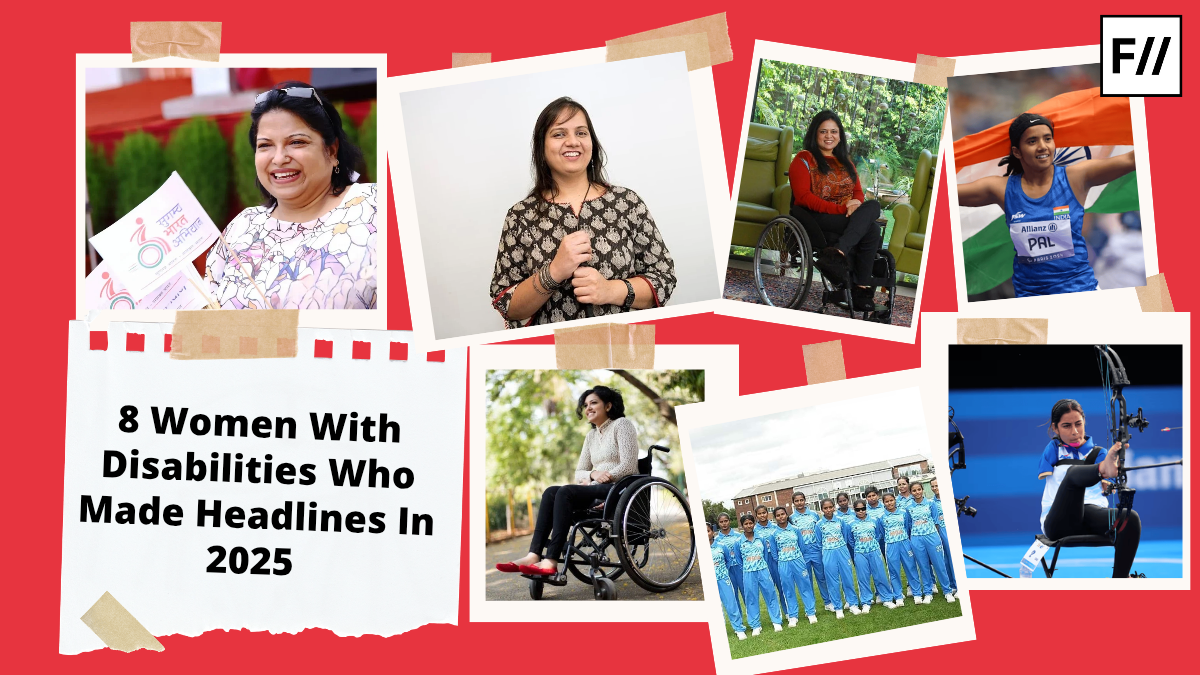Posted by Srishti Pandey
As the COVID-19 cases began to increase each day all over the country, so did the vulnerabilities of the already marginalised communities. The community of people with disabilities, despite being the largest minority, continue to face a number of a barriers (physical, social, psychological) across their lives. The numbers of which have only multiplied after the pandemic hit. In this article, I will specifically focus on the mental and emotional well-being of people with disability during the COVID-19 pandemic.
A number of reports highlighted the increasing mental health issues amidst the lockdown. However, the experiences of disabled people, especially women with disabilities were seldom talked about. The reason wasn’t because their emotional well-being wasn’t affected. It was perhaps, them being already invisible and the pandemic further taking away their voices and visibility.
A number of reports highlighted the increasing mental health issues amidst the lockdown. However, the experiences of disabled people, especially women with disabilities were seldom talked about. The reason wasn’t because their emotional well-being wasn’t affected. It was perhaps, them being already invisible and the pandemic further taking away their voices and visibility.
Also read: COVID-19 Impact: The Health Of Persons With Disabilities Goes Neglected & Forgotten
In order to explore the various effects of COVID-19 on women with disabilities, Rising Flame and Sightsavers carried out a study named, ‘Neglected and Forgotten’, in May, 2020. A total of 82 women with disabilities and 12 experts across 19 states and nine self-identified disability groups participated in the research. The report uncovers and highlights a number of issues followed by recommendations for each of them. As important as mental and emotional well-being has been during the pandemic, up until now, it was not studied specifically when it comes to women with disabilities. This report however, tries to cover the issue.

As a disabled woman, I remember my heart sinking as soon as the lockdown was announced. I started wondering about a thousand things. “Did it mean I’ll have to let go of my independence?”; “What will completely confining myself at home be like?”; “Is there a possibility of me or people I love getting the virus?”; “When will I get to be with my friends?”
However, the question that kept worrying me constantly was “How will my access needs be met after the lockdown ends?” Of course like every one else, I was grappling with the fear of getting the disease. And the realisation that the pandemic is going to be here for long regardless of locking/unlocking the country really affected my emotional well-being. Because I knew that the already existing inaccessibility was only going to worsen, after the lockdown lifts, i.e. while the pandemic and the disease are still around. The uneven roads, inaccessible education institutions/washrooms/other public spaces, forces me and many other persons with disabilities to take physical support from often random people. And so, it affected my emotional well-being, made me feel increasingly confused and scared wondering about how I will go about these things while keeping social distancing in mind. Not only will it be risky to my health but it would also force me to go out only with my parents, whose support was although guaranteed, limiting my independence.
The question that kept worrying me constantly was “How will my access needs be met after the lockdown ends?” Of course like every one else, I was grappling with the fear of getting the disease. And the realisation that the pandemic is going to be here for long regardless of locking/unlocking the country really affected my emotional well-being.
In this report, many people with disabilities shared their fears of not being able to access important information, not receiving adequate food supplies or proper medical care, of either losing or not finding employment and further, how this was affecting their emotional well-being. Women with psychosocial disabilities were reported having even adverse effects.
Unexpected shifts in structures and routines perhaps caused great difficulty and tension. These shifts have further affected their relationships with others. It has also made it hard to carry out usual every day activities. A 32-year-old woman with autism shared in the report that she felt distressed due to the lack of routine and support, especially because she has a young child.
The very thought of and actually being home-bound wasn’t easy for many disabled women, including me. My house isn’t very accessible, which means, I can neither go upstairs to the roof, nor can I go downstairs for a stroll. The internalised ableism stops me from saying yes every time my parents or my brother offer to help me and take me to the roof. The thought that everyone is already under stress and that I should not add to their “burdens” remained in me. The existing conditions reinforced not just how inaccessible the world at large is but also the dominant narratives around disability and dependence. A 21-year-old blind woman shared how much better it was for her when she was living alone. “…when I used to live alone that was not a problem, I had the freedom to just explore things because I had nobody around and had to do everything on my own. That independence and freedom to an extent goes away when you are living at home,” the report quotes.
Being confined to one’s home has also meant not being able to access or meet your friends. More than 50 percent of the participants of the research stated that they missed their friends or colleagues, were bored of not being able to work/ study/ have fun, which affected their emotional well-being further, leaving them to feel lonely and frustrated.
The report also shares women with disabilities feeling a general sense of disappointment and dissatisfaction towards the policy makers and the government at large. The report quotes a 29-year-old DPO leader from Rajasthan saying, “The government is not at all paying attention towards us, which makes us feel that we are not the citizens of this country. Even after living amidst 10 people, I feel alone.” Another participant shared similar thoughts. She mentioned how, “Everything is on papers, and nothing in reality,” referring to the lack of access to facilities that further others the people with disabilities.
Also read: Why The Govt’s Amendments To The Disabilities Act Must Be Opposed
It has been and continues to remain a hard time for everyone. But when it comes to marginalised communities, things tend to become worse. The added marginalisation affects one’s physical as well as emotional well-being. To counter these challenges, the report provided several recommendations. Some of which are:
It has been and continues to remain a hard time for everyone. But when it comes to marginalised communities, things tend to become worse. The added marginalisation affects one’s physical as well as emotional well-being.
- Ensure access to support for all persons, including those experiencing mental or emotional distress during the COVID-19 outbreak, to call-in, in person and online psychosocial support and peer support, based on respect for individual will and preferences. All counselling and psychosocial support services should be deemed to be essential services. This includes access to personal assistance and interpretation where required which adhere to privacy requirements.
- Ensure the development and availability of a wide range of community-based services that respond to the needs of persons with disabilities and respect people’s autonomy, choices, dignity, and privacy.
- Mental health responses need to be embedded in the COVID-19 recovery for persons with disabilities with specific focus on women with disabilities and the National and District Mental Health Programme should be adapted and redesigned to deliver rights based mental health support at the community level.
As our response to the pandemic continues, it becomes essential for us to prioritise the ways in which disabled women will be affected and ensure that support systems expand to reach their needs.
Srishti Pandey is a 21-year-old student of psychology at LSR, Delhi university. She is passionate about disability rights and generally writes on issues revolving around disability with the intention of creating awareness. Apart from writing, she loves travelling and exploring so much that one can find her rolling around the city almost any day, any time! She was an I Can Lead (2019-2020) fellow at Rising Flame.
Rising Flame and Sightsavers conducted and published a study titled Neglected & Forgotten: Women with Disabilities during the Covid Crisis in India in July 2020. 82 women with disabilities participated in its survey which focused on aspects such as Access, Health, Emotional Well-Being and Social Protection, among others. This August, Feminism In India will do a deep-delve into the aforementioned themes.
Featured Image Source: Neglected And Forgotten
About the author(s)
Rising Flame is a nonprofit organisation based in India, working for recognition, protection, and promotion of human rights of People with Disabilities, particularly women and youth with disabilities. Rising Flame’s vision is to build an inclusive world in which diverse bodies, minds, and voices thrive with dignity; live free of discrimination, abuse, and violence; and enjoy equal opportunities and access. Since its establishment in 2017 as a self-led organisation, it aims to enable persons with disabilities standing at multiple intersections to have a voice, have a space, be heard and lead from the front. It is the Recipient for the National Award for Empowerment of Persons with Disabilities 2019.




